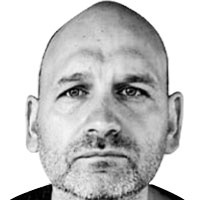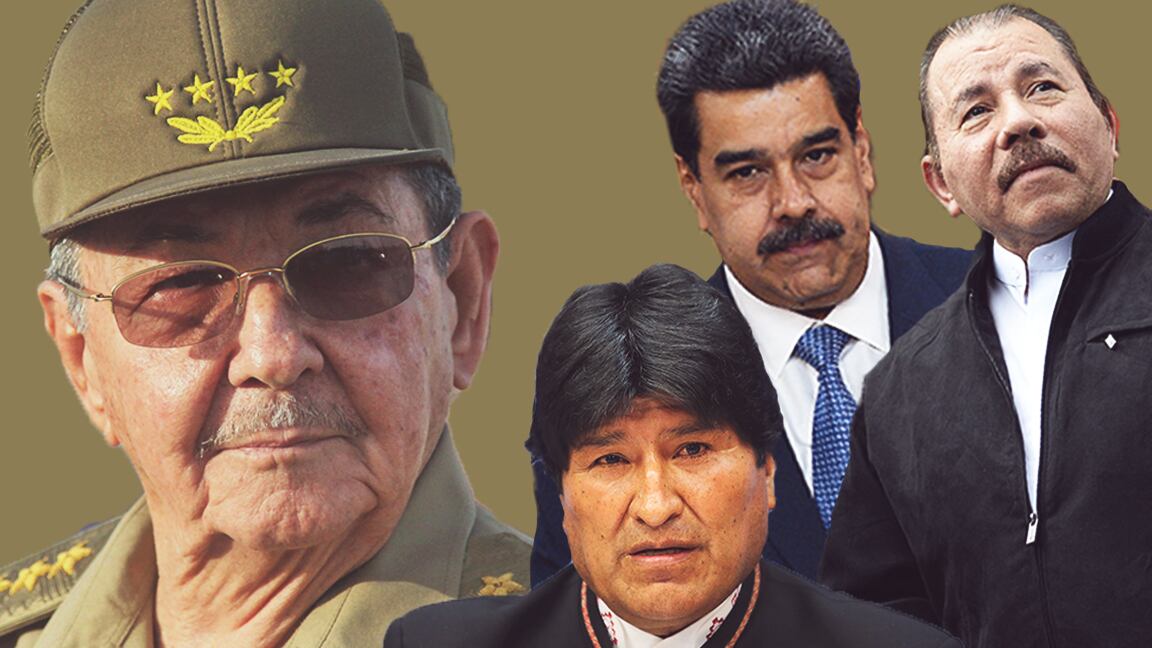CARACAS, Venezuela–For Ruben Castañeda, news that Evo Morales was just ousted as president of Bolivia seemed like a dream. Indeed, it’s pretty much the same dream he’s been having about the fall of this country’s president, Nicolás Maduro.
“Only, it’s not going to happen here,” this middle-aged man said on Monday as he munched on his morning empanada in a bistro in the affluent Caracas neighborhood of Santa Fe.
Still, he didn’t hide his pleasure contemplating what took place in Bolivia.
Morales was one of several presidents in Latin America who have claimed to represent the masses in their countries, sometimes helping to raise them from poverty, sometimes plunging them back into it, and almost always hanging on to power even when the streets turn against them.
There’s Daniel Ortega in Nicaragua, formerly a Sandinista “revolutionary,” now a Sandinista crushing opposition no matter how tattered his credibility. There was Hugo Chávez, who ruled here in Venezuela from 1999 until his death in 2013, and was followed by the uncharismatic Maduro clinging to the “Chavista” organization and the government despite a ruined economy. And there was Morales, who is given credit for some great social and economic accomplishments during his early terms, but was determined to keep his grip on the presidency through a third term and then a fourth—until popular unrest, and the army, said he had to go.
Helping to bind these politicians together, not least by advising and supporting their security forces, have been the Castros of Cuba: the famous Fidel, now dead, and his brother Raul.
Having come to power through democratic elections, Ortega, Maduro and Morales then subverted constitutional processes and came to seem almost unassailable. Even concerted economic and political pressure from the United States couldn’t shake them.
So, yes, Señor Castañeda says that despite his long-term pessimism he feels good. “The Chavistas’ insistence that South America is the continent of Hugo Chávez took a hit. It is a reality check for Maduro.”
The Mexican government has granted Morales asylum and flew him to Mexico City on Tuesday. Morales claimed he fled Bolivia to avert further bloodshed and said a price had been put on his head by "coup plotters."
Castañeda has been watching, he admits, almost gleefully, the emotional upset that Morales’ departure caused among the leaders in the Maduro regime here in Venezuela. The high-ranking Chavistas have been fretting publicly for days about the possible fall of President Morales, a long-time ideological ally of the late Hugo Chávez and President Maduro. The former coca farmer who became his country’s first indigenous president stepped down on Sunday after 14 years of rule.
"Who will take care of the indigenous people in Bolivia now?" asked Diosdado Cabello, a powerful politician and vice-president of the United Socialist Party in Venezuela, during a hastily called press conference on Sunday afternoon.
Cabello alluded to the social policies of the Morales government in a country where two-thirds of the people identify as indigenous.
President Maduro, at one point, joined the chorus of his fellow Chavista party members as they mourned Morales's fall from power. Those present termed Morales' demise a coup backed by the U.S and “fascist” groups in Latin America.
“Bolivia will not happen in Venezuela," Cabello asserted. And he declared that Morales “has been the best president Bolivia ever had."
Evo Morales had been seen by Maduro as a loyal ally, and his position was seen as rock solid. Yet, Morales lost power within 24 hours when his own army turned on him.
“The event produces fear among the regime members but it remains to be seen if they [Chavistas] stick together, or start leaving the ship. I would put my money on the former,” says Venezuelan historian and economist Roberto Casanova.
Alonso Moleiro, a Caracas-based political analyst, does not see any sort of "domino effect" at play here. “In Venezuela, the army is much more loyal to Maduro and much more corrupt than in Bolivia,” he points out. Moleiro used the word “pegamento”—it can be translated as glued-together—to describe the Maduro-military dynamic at this time.
In Bolivia, it was largely the Bolivian army that forced Evo Morales out. This was the strategy that Venezuelan opposition leader Juan Guaidó tried in order to force Maduro out. But the young leader, who in late January proclaimed himself the interim president here, has never managed to sway the powerful and affluent generals to his side and away from Maduro.
According to the well-respected polling company, Datanálisis, Guaidó’s public support has been steadily declining since February, when it was around 60 percent. Now it is down to 40 percent.
The Bolivian drama might stir some hope here, might give a much-needed jolt to the withering spirit among the members of the Venezuelan resistance. “Morales’ demise could encourage the opposition supporters. For sure,” declares columnist Moleiro.
Yet Venezuelans like Ruben Castañeda are resigned to the idea that Maduro has probably survived another year. Recently, Juan Guaidó's face aged with an app circulated on social media with the words “Vamos bien!” (We are doing fine!), a favorite slogan of Guaidó's revolt.
Feelings of desperation by the opposition have been galvanized by recent political and social events in Latin America that Nicolás Maduro frames as an ideological swing to the left right down to the tip of the continent—in which case the fall of Morales would seem to be more the exception than the rule.
In Argentina, the conservative President Mauricio Macri has been defeated at the polls by Perónistas, left-wing populist leaders. In Brazil, former President Luiz Inácio Lula da Silva, an ally of Hugo Chávez, was just been freed from prison after spending 580 days there. He had been sentenced to 12 years on graft charges which some believe were trumped up by the right wing in Brazil.
Venezuelan state television is continuously showing Lula leaving the prison, interpreting the former president’s liberation as triumphant vindication.
The government in Chile has been rocked by weeks-long bloody protests. The left-wing protesters clamoring against the conservative government of President Sebastian Piñera have been marching for social justice and equality, pushing the president to make more and more concessions. "The wind of Bolivarian [ie., Venezuelan] revolution is blowing even in Chile," proclaimed an anchor on Venezuelan state television VTV, the mouthpiece of the Maduro regime.
Diosdado Cabello suggested that the street protests that have flared in Chile, Ecuador and Peru began here in Caracas during the Foro São Paolo gathering in July. Here, socialists from all around South America and the Caribbean region descended on Caracas to "rekindle the wind" of the Bolivarian revolution launched by Hugo Chávez in 1999. (Simón Bolívar is seen as the liberator of much of Latin America from Spanish rule).
The members of the Bolivian delegation mingled in the crowd in their ponchos and bowler hats, traditional clothing of the indigenous people in Bolivia. Now, these indigenous Bolivians will serve Venezuela’s ruling elite as a reminder that long-time leaders, some larger than life, can be ousted in no time if the tide turns against them.
But if some Chavistas are feeling unnerved, it is not hard to find opposition supporters who offer a sober, optimistic assessment of the current situation in Venezuela. "The Bolivian army did it. Our army did not. That's why we are stuck with Maduro for at least another season," said Aymé Quintana as she waited for a bus in the Caracas neighborhood of Las Mercedes. Christmas lights shimmered in the distance.








